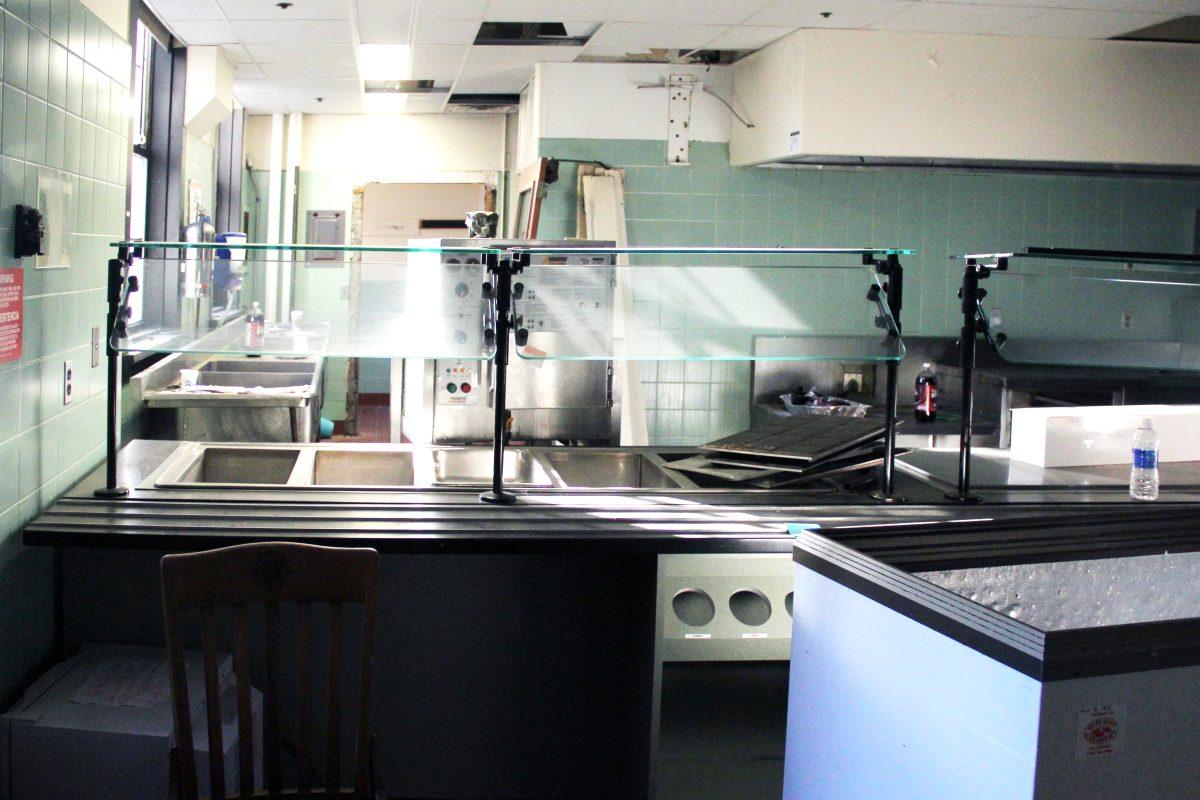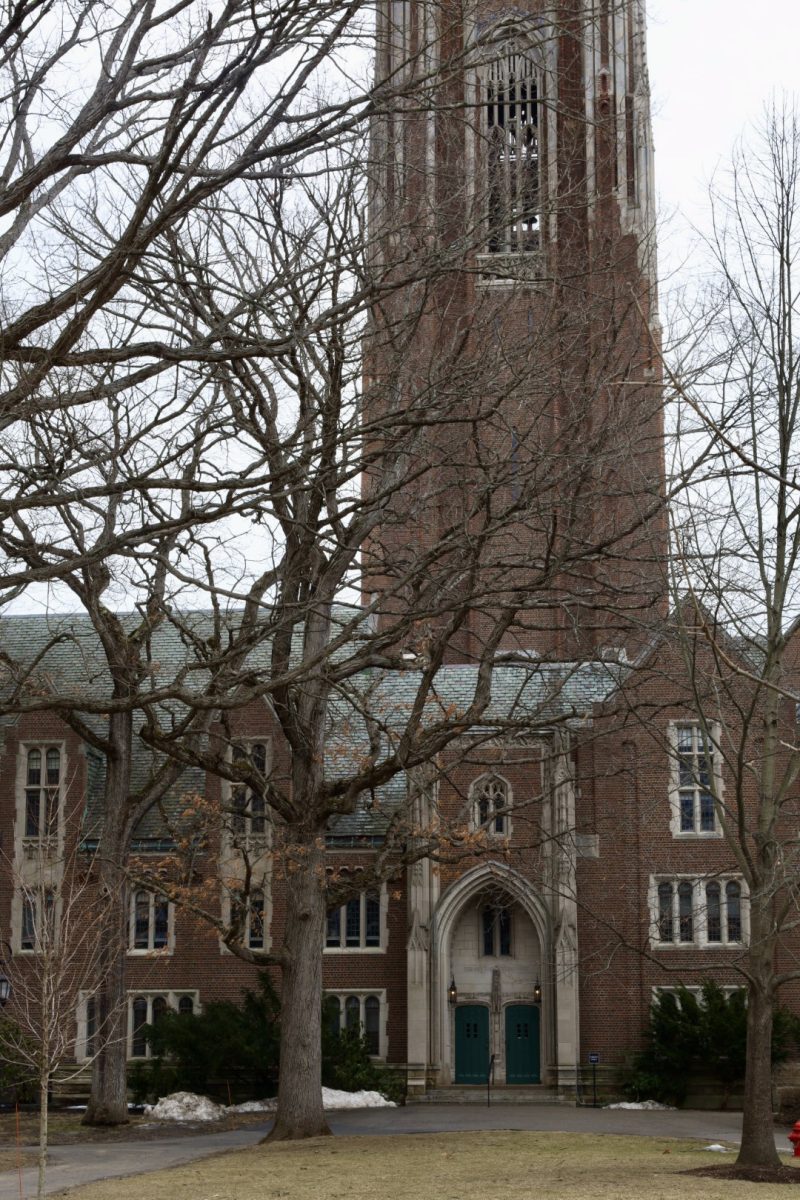The College has postponed renovations to Munger Hall from June 2015 but has not determined when they will to start construction. Munger will remain open and available for student housing until then.
According to a recent announcement from President H. Kim Bottomly and the Board of Trustees, extra time will be devoted to creating a better design and consulting with the Board of Trustees. Delaying construction also allows time for the College to obtain building permits from the Town of Wellesley, which is a lengthier undertaking than the administration initially expected due to the multifaceted process of getting approval and abiding by building codes.
According to Dean of Students Debra DeMeis, Munger renovations will take 15 months, which means that they must start in the month of June so that Munger will open the following September for the next academic school year. She suggested that Munger renovations could start June 2016, if not this June, but the exact timing is uncertain. The postponement has also allowed the College more time to plan for any “swing space,” or alternative housing created from large single rooms or other empty spaces on campus.
Munger Hall, first built in the 1920s, has never undergone renovation before and will be the first residence hall to be reconstructed during Campus Renewal. The opening of Schneider Center and continued construction in the Dorothy Towne Field House, Green Hall and the Boathouse are all part of the plan for Campus Renewal, for which construction began in early 2014.
The specific start date of the Munger renovations is currently unknown; however, the renovation of Pendleton West will continue to move on schedule, with final approval by the Trustees to take place in February and construction starting in June.
While Munger is being renovated, the 150 students who would otherwise live in Munger will be moved to “swing space,” or alternative housing spaces. Large singles on campus will be converted into double rooms. Substantial spaces such as the Cazenove dining room and the Shafer and Claflin recreation rooms will be transformed into extra bedrooms. Empty spaces in Simpson that were formerly offices may also be converted into dorm rooms. In order to maximize the space available in each room, the College will invest in new furniture that allows beds to be raised high enough to fit a three-drawer dresser underneath.
According to Kris Niendorf, assistant dean of students and director of residential and campus life, the new rooms will meet the current Wellesley standards for furniture and dorm square footage. The current average square footage is 354 square feet per student, which ranges from 277 square feet in Dower to 516 square feet in Bates Hall.
“We believe that some of the [swing] spaces will become permanent and others will return to their current use once the renovations are completed,” Niendorf stated.
Students who currently live in Munger will have priority when choosing rooms for the following academic year during the building construction. Additionally, there will be fewer singles available overall, as some large singles around campus will be accommodated for multiple students in order to fit the 150 students who would have otherwise lived in Munger.
“Our hope is to still offer the same percentage of single rooms to juniors and seniors that are currently available,” Niendorf said.
The internal structures in Munger will be completely removed and rebuilt to match recent electrical and plumbing standards. The building plan features fewer triple rooms, so that the new double rooms can properly house two occupants. Two four- person suites will be added to each floor. In addition, the common space in the basement will be enhanced to include a larger kitchen similar to the kitchen in Lake House, with a larger dining and cooking area and multiple refrigerators and ovens. The Residential Director apartment and office will be located on the lower level.
The Munger dining hall area, which has been out of use since 2002, will be expanded and brought back into operation. The new dining hall overlooking Munger Meadow will feature a hearth oven like the one in the Campus Center dining hall and a large whole grains and vegetable area. After reopening the Munger dining hall, vegetarian and kosher Pomeroy dining hall will be closed. The College is still debating whether Stone-Davis will be closed and whether students will be charged to eat at the Bae Pao Lu Chow dining hall. According to Niendorf, the Munger dining hall will offer both vegetarian and non-vegetarian options.
“We hope to have a full kosher dining program available [in Munger],” Niendorf said.
Despite these dining plans, students are still skeptical of the College’s ability to accommodate the wide variety of student meal plans.
“From people in the vegetarian and vegan community, there is a lot of unrest that there is not going to be [fully] kosher and vegetarian and vegan options,” Ariel Cohen ’18, a student who eats kosher, said. “It’s not going to be the same as [in Pomeroy], where there are different proteins, and the [food] gets creative.”
Although the decision to charge at Lulu has not been definitively made yet, some students worry that it will bring about negative effects on campus.
“If they start to charge at Lulu it will be kind of classist,” Kumari Devarajan ’17 said.
Although Munger will offer vegetarian, vegan and kosher options, students commented that the strict rules at Pomeroy regarding what can and cannot be brought into the dining facility will be hard to enforce at a larger and less strictly kosher dining hall.
Additionally, several students who are wary about swing space expressed concern about the Munger community. Some also doubt that the same number of singles available to juniors and seniors will be maintained during the construction period.
“I feel like 150 students is a lot of students to accommodate for, and it will be a tight squeeze anyway, so keeping the same number of singles available to students, especially regarding juniors, seems increasingly unlikely,” Alice Lee ’18 said.
 While students acknowledge that the transition period and addition of swing space may be rough, future residential hall renovations would fulfill an important need.
While students acknowledge that the transition period and addition of swing space may be rough, future residential hall renovations would fulfill an important need.
“I hope that they have some delegation in the 2025 plan to incorporate additional student housing and foresee that in any future situation that may emulate this, they will have a space that has versatility in its use, so that once something happens we will have that space available,” Dominique Steele ’17 said.
Some students currently living in Munger fear that the renovations will change the spirit of the hall.
“It almost diminishes the community because it breaks up Munger for a year, and with all the traditions that Munger has, I don’t know that after the renovations if they’ll be able to get back into the swing of things,” Katherine Chan ’18, a current Munger resident, said.
She notes that once the dining hall is added into the residence building and Munger is more frequented, it will change the spirit of the hall.
“Munger is not a very popular dorm,” Chan added. “People choose to live in Munger because here it’s a very close-knit community.”
Other expressed that because the renovation of Munger will bring an improved residence hall, the short term inconvenience of temporary alternative housing during the transition period is worth it.
“I think that it will be okay in the long run,” Steele said. “Stuff like this is going to happen anyway.”
Photos by Bianca Pichamuthu ’16, Photography Editor






